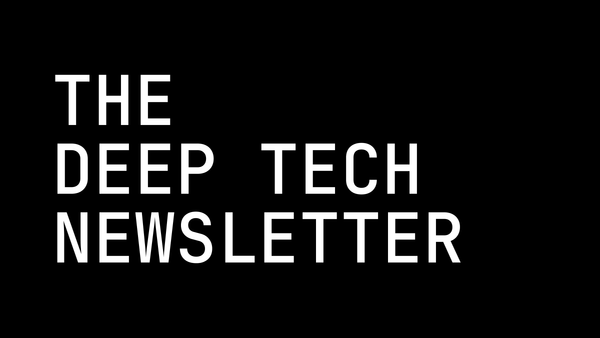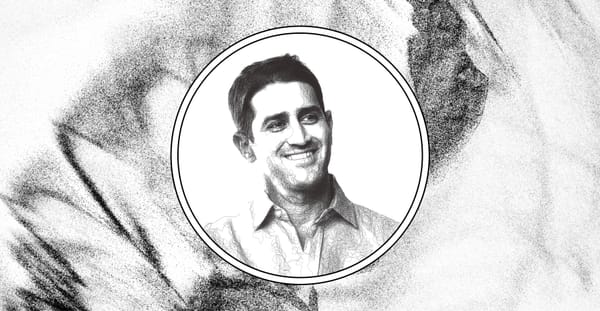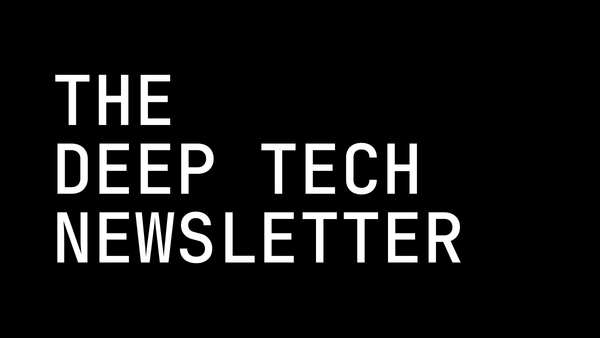Bridging Military Expertise and Tech Innovation with The Veteran Fund’s Mike Sherbakov
Mike Sherbakov is a General Partner of The Veteran Fund, an early-stage venture capital firm that invests in military veteran-led technology startups.
Mike Sherbakov is a General Partner of The Veteran Fund, an early-stage venture capital firm that invests in military veteran-led technology startups.

What led you to start The Veteran Fund?
I grew up in the Bay Area and spent five years on active duty as a Marine. After that, I built a few companies in the health and wellness space and even joined a venture-backed startup that is now publicly traded. This allowed me to gain experience as an operator and transition to the investor/advisor side of things. When I started angel investing, I decided I wanted to do this at scale.
That’s why I launched the Founder Institute program, the world’s largest pre-seed startup accelerator. I started the program in San Diego and now run it for all of Southern California. As part of that, I also oversee the veteran vertical, which gives all veterans, military spouses, and people from the military community a scholarship to go through the Founder Institute for free.
One of my partners, Ryan Micheletti, has been building a veteran startup ecosystem for the last decade. Two years ago, he approached me about starting a veteran-focused fund, as he had an Air Force veteran who wanted to be a limited partner. I brought in my friend Justin Nahama, a former Marine officer and federal prosecutor, as well as Lisa Sutton, to start The Veteran Fund. Our tagline is “advancing America through venture capital,” and this is our life’s work.
Our core thesis is investing in great technology companies with military veterans in leadership roles. We believe that someone who went through the world’s greatest leadership academy, the U.S. military, and has deep domain expertise, is a recipe for success. It’s been a rewarding journey, going from a “crazy idea” and early LPs to now having established The Veteran Fund as a respected name. We’re just getting started.
Why is now the best time to be building in national security and defense?
I’ve always found entrepreneurship to be one of the greatest change agents in the world. Watching my parents come to this country with virtually nothing and accomplish so much through hard work has been incredibly inspiring. My dad was an entrepreneur at heart, and I’ve seen first-hand the incredible potential this country offers. I’ve traveled to 59 other countries, so I have a good understanding of geopolitics. There really is no other place like America. America is the lighthouse for entrepreneurship, liberty, and freedom, and that is something I and the others involved are deeply passionate about protecting.
In this country, we have the unique ability to take big swings at things that truly matter to us through entrepreneurship. If we fail, it’s almost a badge of honor. We can dust ourselves off and try again, something that’s simply not possible in most other parts of the world. And then you have the venture capital industry, which is fueling these transformative ideas and the founders behind them. America provides the unparalleled opportunity to create change through entrepreneurship and build businesses that truly make a difference.
When you combine that entrepreneurial spirit with the gravity of our current global landscape, the answer becomes clear. We must invest in American innovation, especially when it comes to national security and defense. The geopolitical tensions we’re seeing with Russia, Ukraine, Israel, and Palestine aren’t going away, no matter how much we wish they would. As a team, we had some tough internal conversations about the ethics of investing in certain defense technologies. Ultimately, we realized that to keep this country safe and maintain our technological edge, we need to ensure our warfighters have access to the absolute best systems and capabilities. Even if we stop innovating, our adversaries will not.
When you think about dual use, how do you weave together both the commercial and public aspects?
A core part of our thesis is investing in dual-use technology but with a preference for commercial-first dual-use. This is because there are great pathways to get government contracts and we want to avoid the “Valley of Death.” We feel the solution to the valley of death is companies that have an early market signal and strong commercial traction. This way, we can come in and help them with phase one, phase two, and then ultimately those government contracts.
All these technologies are in the best interest of the nation, so we’re willing to put billions of dollars to work in funds that help this technology. This money is hard to access, and there will be hurdles along the way, but we are seeing more and more initiatives to bring capital to those critical technology areas. What is most exciting to me is when a really talented founder sees available capital in an area and is incentivized to start building in that space.
When you’re talking to founders or potential founders in NatSec, what are some things they should anticipate?
Sometimes it feels like with software in Silicon Valley, there are hype cycles and booms. You get a lot of people jumping in, but when you ask them why, all they can say is that they can make a lot of money or it’s the next big thing. Some people are even saying this about defense tech and dual-use, but I strongly disagree. I believe that people are building companies that are in the nation’s best interest because they care deeply about it.
When I am talking to founders and potential founders, I ask them about their deep “why.” Is this the thing they are waking up and going to sleep thinking about? Is this the thing they’re going to be okay working on for the next 10 years, even if they don’t succeed? Even though you do whatever you can to make sure things work out, and it doesn’t, will the 10 years of your life dedicated to this still have been worth it? The answer is absolutely.
Every founder needs to know they are going to hit huge roadblocks, but if there’s a deep resilience and mission behind what they’re building, they are most likely going to figure it out and succeed. It is a very meta answer to the question, but it is important because it applies to all industries.
How does military service prepare veterans for entrepreneurship?
Three things: leadership, resilience, and purpose. When I joined the Marines in 2003 post-9/11, I was ready to go overseas, fight for our country, and put my life on the line because I care so deeply about this country’s liberty and freedom. That purpose is clear.
Now, when you relate it to the founder’s journey, there is a “why” to what they’re building. As a founder, you’re going to hit roadblocks, the criticism, the barely enough money in your bank account, or even in the negative, but you have to figure it out. Arguably, this is the most important part of early-stage startups because there is one reason, and one reason only, that startups fail – the founders quit.
People will say it’s because they ran out of money. But when you run out of money, it’s time to raise money, not a time to give up. If there’s one demographic of a person to bet on that is not going to quit, it’s a military member. In the Marines, we adapt and overcome. Things never go according to plan, but you’re going to get it done either way. We’ve seen this over and over again – military members have a mission, and they are going to accomplish it no matter what, doing whatever it takes. Whether it’s sleepless nights or figuring out funding sources, we’ve seen an ability to adapt and overcome from our military veteran founders.
The last piece relates to them as their companies start to grow – leadership. Founders cannot do this alone, and you need to have a great team and command presence. Anyone who’s been through the military starts at the bottom of the totem pole. When I was a private first class, I was scrubbing toilets with a toothbrush. This is how you start, and then you work your way up to a position. Eventually, I was in charge of my unit. You develop yourself as a leader through the ranks in a way that immediately translates to business because you are not demanding respect – you’ve earned that respect, and people want to come alongside you. I’ve seen military veterans build and lead their teams unlike anything else. I’ve worked in the startup world for a long time, but there is a clear difference in the way they lead. So when you put purpose, resilience, and leadership together, it is a unique recipe for success.
Are there technologies that you’re particularly excited to invest in? Where do we need to invest more?
I am very bullish on the space sector. We have two space companies in our portfolio right now, Lonestar and Proteus Space. If we’re talking about the future of warfare, most people would agree that kinetic capabilities will continue to play a major role. However, the potential for devastating cyber warfare is extremely concerning, so we need to stay far ahead of those emerging threats.
When it comes to defense specifically, if you extrapolate from the cyber domain the advancements in AI are truly remarkable. What I mean by that is, AI is iterating so incredibly fast that it’s disrupting virtually every industry. There are different layers to AI, from the underlying infrastructure to the application layer, and it’s very challenging to predict where things will go in the future. Even AI experts didn’t anticipate how rapidly we’d reach this point, and no one knows for certain where we’ll be a year from now.
AI is growing faster than anything we’ve ever seen, and how companies leverage and integrate these technologies is absolutely fascinating to me. Especially as it relates to the defense and national security spheres. We’re very fortunate that hubs like San Francisco are at the forefront of AI innovation, rather than having that core technology centered elsewhere in the world.
While AI is an incredible tool, it needs to be used strategically and with the proper guidelines in place. It’s like a hammer – you can use it to build a house, or you can use it to hurt someone. We need to make sure America maintains its leadership in this critical field because it’s simply unrealistic to think we can just pause AI innovation altogether.
HAUS specializes in public relations and creative services for deep tech startups.




